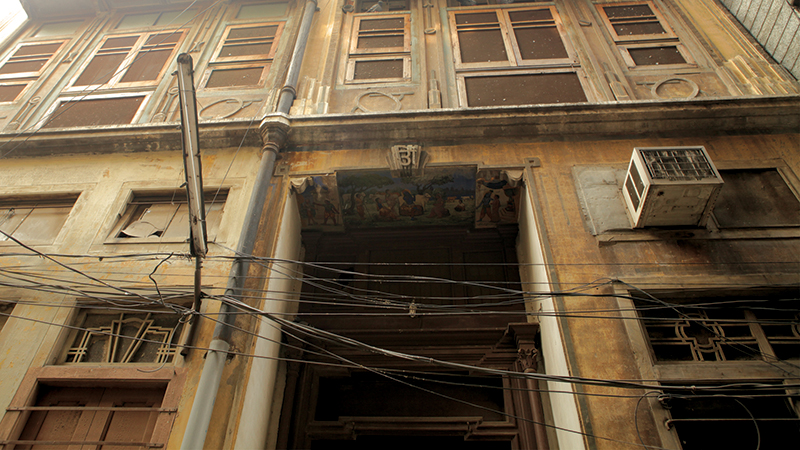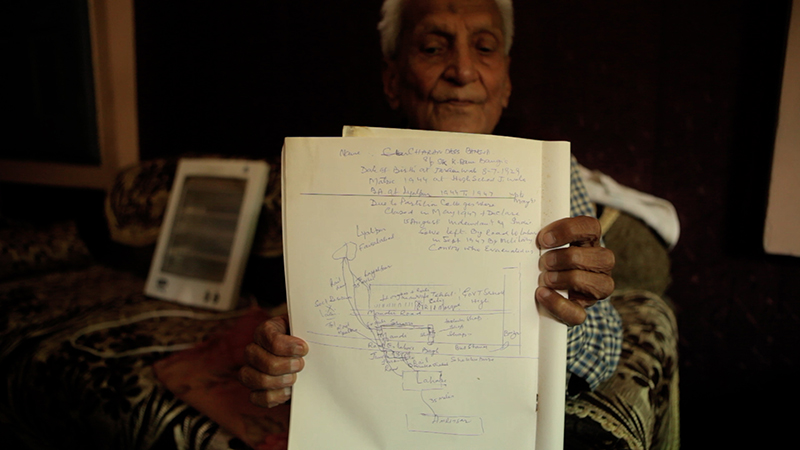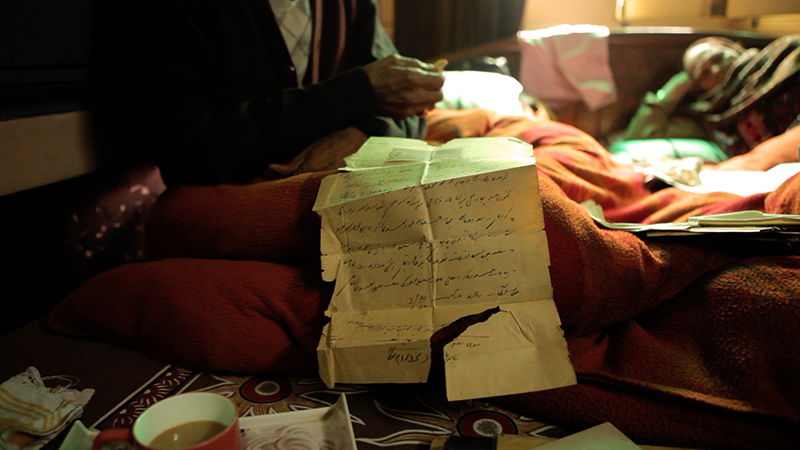Priyanka Chhabra




Arts Practice
2019-2020
Grant Period: One year and three months
Priyanka Chhabra is a Manali-based independent filmmaker and editor, who graduated from the National Institute of Design. Her previous films include A Summer Flu, Shape of Trees, Shame was a Place Inside, The Furnished Room and Pichla Varka. In her works, she explores the themes of memory, landscape and relationships of people to places. This grant enables her to create a moving image work exploring the overlapping relationships between memory, place and personal archive through the story of the protagonist Charandas Bangia.
Charandas Bangia is a refugee of the Partition from Lyallpur (now Faisalabad) in Pakistan, who came to settle in Amritsar in 1948. He was 21 years old and a final year student at the Government College in Lyallpur when the Partition took place in 1947. He returned home from Jaranwala Mandi (now in Pakistan) after his college shut down following the news about a probable Partition of India. This story forms the crux of Priyanka’s project. For her, this story is important on two accounts: one is Charandas Bangia’s sense of history - the place and time he chooses to begin his story; and the second is his personal archive, some of which he has already shared with Priyanka during the shoot of Pichla Varka. That was the first time he had revealed his collection of papers to anybody. Even his family had not known that he was a keen and dedicated archivist, Priyanka says. In the current film, she will attempt to use these threads to create a sequence of events where personal history overlaps with the larger political narrative.
The film will be located in Amritsar, a city which has its own political, socio-cultural and historical contexts. Experiences of the Punjabi community in Amritsar are very different from those of people in Delhi, given Amritsar’s proximity to Lahore. As Priyanka puts it, in Amritsar, ‘the border is an everyday lived reality.’
For the film, Priyanka will work with documenting/ representing flashes of memory provoked by Charandas Bangia’s personal archive starting with the Partition, and trace its remnants and shadows as they fall on the present day and life in the city of Amritsar. One of the key questions that the film seeks to examine is the patriarchal structure manifest in the relation between person and property ownership. This would possibly include narratives of what happened to the workers and staff employed in the protagonist’s house. The film will be a contemplation on the ways in which individuals experience history, and how they come to define it in their personal lives using memory and place. It will also comment on the narrative diversity of the Partition of 1947. This film, Priyanka hopes, will be a moving image polyphonic text which not only documents history, facts, dates and time, but also textures, tastes, voices and sounds of the time and places we see and hear about. In doing so, the film will explore the legitimacy and validity of memory as evidence of a time and a place.
While there are rich literary texts on Partition in various Indian languages, most mainstream films on Partition follow the same tropes, representations, stereotypes and revolve around love stories. The cinematic form has been the least explored of all possible expressions on the Partition. In this context, an experimental film of this nature becomes important. A work like this will possibly challenge the mainstream narrative about Partition, identity, community and also document the last living generation from that time.
The duration of the film is expected to be 30-40 minutes and will be in Hindi / Punjabi. The deliverables from this project will be the film and video recordings of interviews.
This grant is made possible with support from Illana Cariappa and Cholamandalam Investment and Finance Company.
